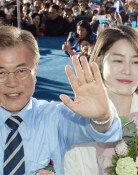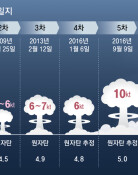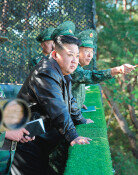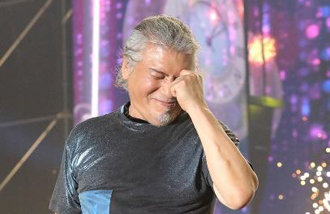[Opinion] Difficulties of Living in Korea for Foreigners
[Opinion] Difficulties of Living in Korea for Foreigners
Posted October. 03, 2007 03:14,
Foreigners living in Korea are not allowed to use social facilities even if they become disabled after being involved in traffic accidents because the Korean government doesnt issue disabled persons certificates to foreigners. Regardless of whether they are professors in prestigious universities or lecturers in foreign language institutes, foreigners are only eligible for a one-year work visa. Even worse, their spouses are not even qualified to have this work visa. Some complain that it is harder to obtain an employment visa in Korea than denizenship in the U.S. Because all of the essential documents are written in Korean, requesting assistance from an agency is a prerequisite step.
As foreigners, these inconveniences might be seen as discriminatory and social isolation. Robert Ian McKay, associate professor of the School of Computer Science and Engineering at Seoul National University, who was appointed as the first foreign professor at SNUs engineering department two years ago, also faced the same experience. Through a 29-page report titled Measure for Attracting Foreign Professors, he specifically described the difficulties and inconveniences that foreigners including talented professionals confront in their lives in Korea.
In this report, McKay described several episodes that he experienced. For example, he has been asked to turn in a copy of family registers that is only available to Koreans. Also, he almost missed the deadline of a research funding application because the response sent from Korea Research Foundation was written in Korean. Furthermore, he said that all of the application procedures such as those for research funding and publications are carried out in Korean. Even though people stress the need of foreign professionals, it is rare to see websites that describe specific employment information such as tax, annual wage, tenures, and promotion opportunities in English. Since the employment process is not transparent, they are often informed through word-of-mouth. Furthermore, there is no menu for vegetarians and those who cannot eat pork due to cultural differences in school cafeteria.
While reading the report of professor McKay, we gradually realized that globalization in Korea can be started through our careful concern of foreigners everyday lives in Korea, rather than working on the construction of huge international cities. Only when we see things through the eyes of foreigners can we develop an environment in which the global talented can spread their dreams. Amid the internationalization fad on school campuses, school authorities are very keen to have foreign professors teach at their schools. But more importantly, schools must keep in mind that foreign professors can achieve their research and give decent lectures to students when they can enjoy their lives in Korea.
Huh Mun-myeong, Editorial Writer, angelhuh@donga.com
Headline News
- S. Korea, US agree on defense const sharing-plan US presidential election
- Medical school quota discussions spark confusion 40 days before exam
- Zuckerberg surpasses Bezos to become world’s second richest person
- Son excluded from October national team due to thigh injury
- Ruing and opposition leaders launch campaigns ahead of by-election







